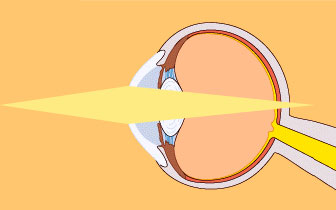Anticholinergics

- Systemically-administered medications used to treat gastric distress, spastic bladder, and side effects of anti-psychotic medications
- Most common ophthalmic side effect: loss of accommodation ("iatrogenic presbyopia")
- Loss of accommodation results from paralysis of ciliary muscle
- Topical installation (but not systemic use) may rarely provoke angle-closure glaucoma
- Blurred vision at reading distance in patients aged under 55 years
- Slightly dilated pupils that constrict weakly to bright light
- Elevated intraocular pressure if angle-closure glaucoma has occurred
- Anticholinergics accidentally or deliberately instilled in eyes, but they cause more widely dilated pupils that will not constrict to bright light
- Common offenders: scopolamine patch for seasickness, aerosolized medications for respiratory secretions, plant substances, or cycloplegic eye drops (atropine, homatropine, scopolamine, cyclopentolate, tropicamide)
- Systemic dysautonomias can mimic effects of anticholinergic medications
- Anticipate loss of accommodation and warn patients that reading glasses may be necessary
- Recognize that dilated pupils may result from accidental contact and cause unnecessary alarm, especially in patients on respiratory therapy
- Recognize that unacknowledged instillation of anticholinergic medications may be part of factitious illness
- Blurred vision at reading distance can be fully corrected with glasses
